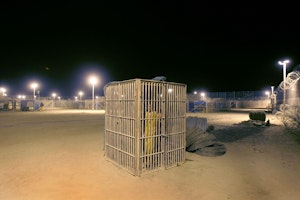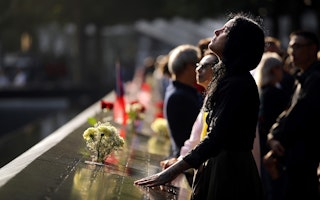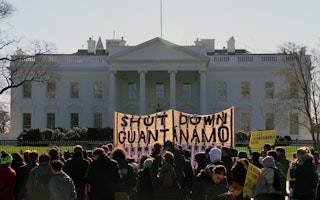John McCain’s Profile in Courage
By Stephen Rickard

One of my prized possessions has long been a dog-eared copy of John F. Kennedy’s Profiles in Courage.
It was already pretty beat-up when, sometime around 1969, at the age of 12, during the start of a cross-country road trip in the family station wagon, I bought it for a nickel in a used bookstore. Whatever the book’s faults (and I’ve come to understand that it has many), and whatever questions there may be about the extent of JFK's authorship, the book inspired a young kid growing up in the American hinterlands that politics could be a noble profession—that public service could be heroic.
Senator John McCain belongs in that book.
Profiles in Courage contains eight profiles of United States senators facing difficult moral and political dilemmas. The last chapter includes an account that reminds me in many ways of McCain’s fight against torture, namely Robert Taft’s battle against what he considered to be the “victor’s justice” tribunal at Nuremberg and its imposition of arguably ex post facto law on the defendants. Whatever one thinks of his argument, demanding better treatment for Goering is probably about as close politically as one can get to arguing that it is wrong to torture Khalid Sheikh Mohammed.
As JFK noted, Taft had presidential ambitions, and his Nuremberg criticisms played a part in his failure to win the 1948 Republican nomination for president—just as McCain was willing to risk his party’s nomination by challenging the Bush Administration on torture. Taft might well have uttered McCain’s classic statement: “This question isn’t about our enemies; it’s about us.”
Reading about Taft, John Quincy Adams, and other courageous senators in Profiles in Courage led to a career in Washington, where, among other things, I was privileged to work in the Senate for another inimitable political maverick—Senator Daniel Patrick Moynihan—who also abhorred torture and frequently worked across the aisle for the public good.
My first strong recollection of McCain in the Senate was when he rose in furious defense of Senator John Kerry, with whom he was working to normalize U.S. relations with Vietnam. It is difficult to appreciate how politically toxic the issue was in 1993. I met with many New Yorkers who were convinced that Vietnam was holding U.S. prisoners of war in horrific camps deep in the jungle. There was a cottage industry of popular movies, usually starring Sylvester Stallone and Chuck Norris, which were built around this premise. For Americans convinced that these films represented reality, anyone who questioned the assumption was part of “the conspiracy”; and they especially focused their fury on Kerry, who had been a prominent critic of the war. Despite their many strong differences, I will never forget how McCain turned his legendary, volcanic anger on Kerry's critics.
Much has been written—quite rightly—about McCain’s courageous opposition to torture. Indeed, this was the signature McCain issue on which I was most personally involved, and I worked hard to mobilize public support for his efforts. I do not know anyone involved in those fights who believes that the successes achieved on this issue—as partial as they may have been—could have happened without McCain. Passing the McCain Amendment, preserving central aspects of the Geneva Conventions in the Military Commissions Act, supporting and ultimately obtaining the public release of the summary of the Senate Intelligence Committee Study on CIA Detention and Interrogation Program, the McCain-Feinstein bill codifying President Obama’s executive order on ending torture and CIA black sites; none of these successes would have been possible without McCain’s passionate leadership and support.
My last personal contact with McCain came in a meeting he had with George Soros a few months after the assassination of outspoken Putin critic Boris Nemtsov in 2015. As they sat together in McCain's office, discussing the challenge of Putin’s Russia, McCain said, “Six months ago Boris Nemtsov was sitting in the chair you are sitting in.” There, in a nutshell, is what made John McCain so exceptional: his tireless support for small-d democrats and reformers around the world, and his willingness to work with people across the political spectrum to achieve good.
A couple of years ago it occurred to me how much, over my nearly three decades in Washington, John McCain had personified the values, celebrated in Profiles of Courage, which led me to Washington in the first place. I asked him to sign my copy. It is now an even more treasured possession.
John McCain was one for the ages; a reminder of what we can be when we summon what is best in us, and a model of what our politics can be—and must again become.

Until January 2023, Stephen Rickard was the director of Foreign Policy Constituency Building at the Open Society Foundations.


